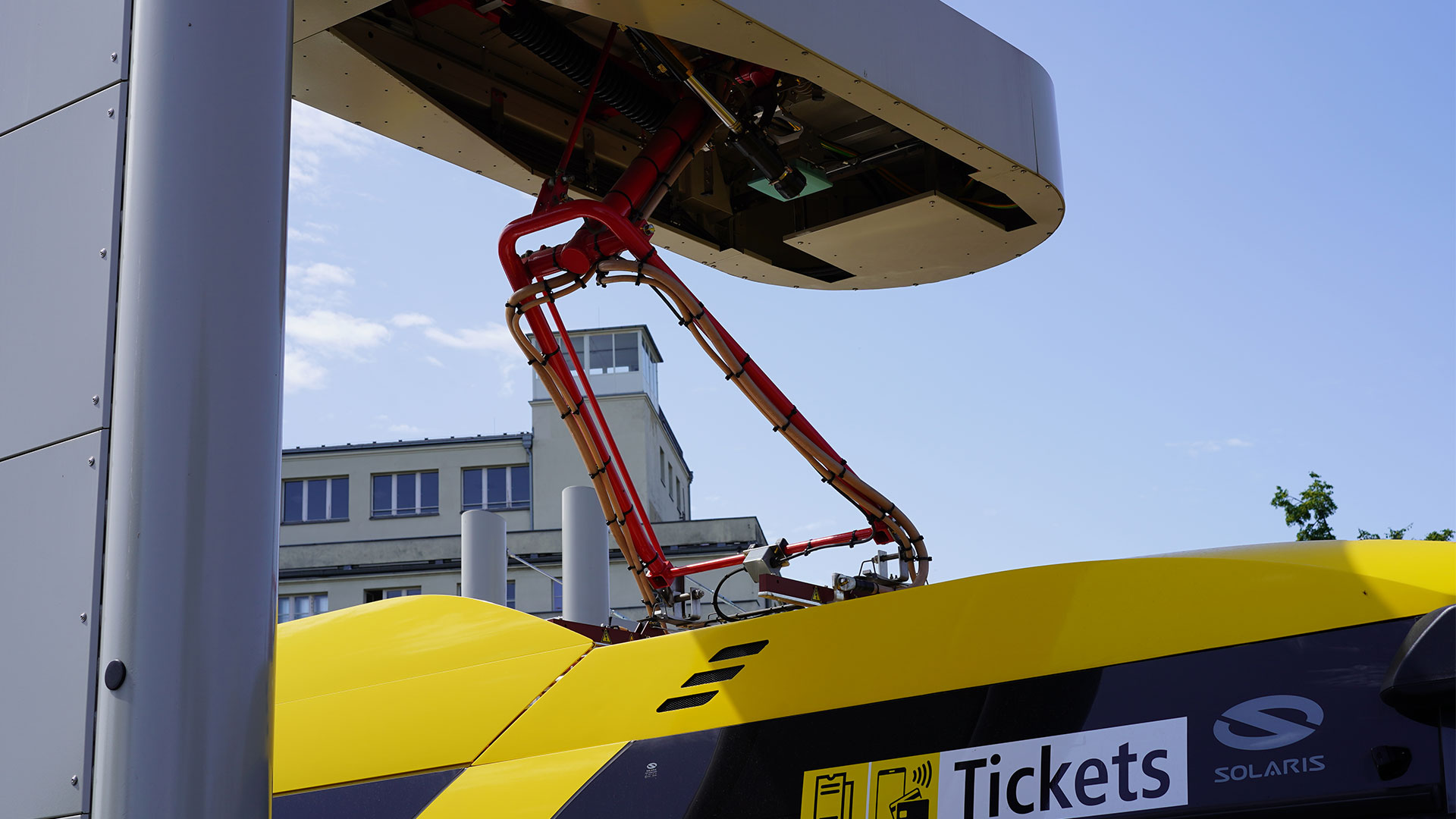Energy consumption module

In today’s fast-paced economy, transport plays a major role in driving growth, but it comes with a significantly adverse impact on our environment. Transport contributes nearly 24% of the global CO2 emissions. Introducing electric vehicles has revolutionised the global effort towards this common cause. Despite not being the silver bullet to solve our climate issues, e-mobility has undoubtedly proved to be an essential piece of the decarbonisation puzzle.
A holistic approach to decarbonising the transport sector is key. However, we should also recognise that like-for-like replacement of electric vehicles (i.e., when an internal combustion engine (ICE) car is replaced by an electric car) is not a sustainable solution to our already congested cities. We need to ensure a mass transit system is at the forefront of our decarbonisation goals. Electrifying bus fleets is one of the most impactful steps cities can take and should be prioritised. Zero tailpipe emissions, coupled with a modal switch away from low-occupancy cars, amplify the benefits of bus electrification. When powered by renewable energy, they offer a clean alternative to diesel fleets but successful e-bus rollouts require more than just vehicle procurement—they demand a deep understanding of operational needs, charging strategies, infrastructure investments, and long-term cost implications. A well-informed plan can derisk any investment, particularly important for emerging economies with limited resources. We support cities and public transport agencies in progressing with their public transport electrification journey.
ITP has been working with international development partners and transport agencies to assess the need to roll out electric buses on both city and regional routes. We use our in-house tools and expertise to develop practical solutions. Our E-bus modelling tool is designed to support the holistic planning of battery electric buses (BEBs) by bringing together technical modelling, operational scheduling, and economic analysis. Over the past two years, the suite has supported projects globally, spanning Asia, Africa, and beyond. The purpose of the tool is to provide quantitative assessments to respond to the key questions of BEB adoption:
Informed by our analytical work, we provide further practical advice on the economics of BEB adoption as opposed to other alternative fuel technologies, alternative business models for asset ownership, grid energy impacts and, last but not least, investment and implementation action plans. Our expertise provides a one-stop solution for our clients in their BEB planning journey.

Unique Selling Point
Our scheduling module offers a flexible assessment tool to test different operational scenarios and optimise the fleet size, number of chargers and charging regime. This module:
This is especially useful when planning for high-frequency routes, where downtime for charging must be minimised to keep services consistent. The module output helps develop a capital investment package needed for the estimated fleet size and charging infrastructure requirements.
This module offers a detailed overview of costs, enabling stakeholders to evaluate the feasibility and sustainability of projects beyond just the initial investment. The Total Cost of Ownership (TCO) analysis allows us to identify suitable business models and policy measures aimed at reducing the costs of BEBs compared to alternative fuel technologies. Additionally, it helps determine the amount of viability gap funding or subsidies required to make BEBs a practical option for operators and transportation agencies.
The modelling suite has already supported several major studies worldwide:
ITP delivered a feasibility study for battery electric buses on 9 proposed BRT corridors. The tool helped model energy consumption, assess vehicle performance under extreme climates, and plan services and charging strategies. It also informed grid connection needs and provided a Total Cost of Ownership analysis.
The tool was used for energy consumption modelling, identifying potential routes and supporting traffic management features to make BEB adoption viable. To support the assessment, ITP collected onboard boarding and alighting data using another in-house tool, “Transit-Wand”.
ITP supported the development of a public transport roadmap for Tashkent. The tool helped assess the viability of introducing electric buses on longer regional routes in Tashkent. The tool helped to develop a capital investment package and assess alternative business models, including commercial outright purchase model, aggregated outright purchase model and asset leasing model, to create a level-playing field for private operators to operate BEBs.
Experts team Sustainable development
Discover how we can support you to with public transport reform, fares and ticketing schemes and network reviews.
